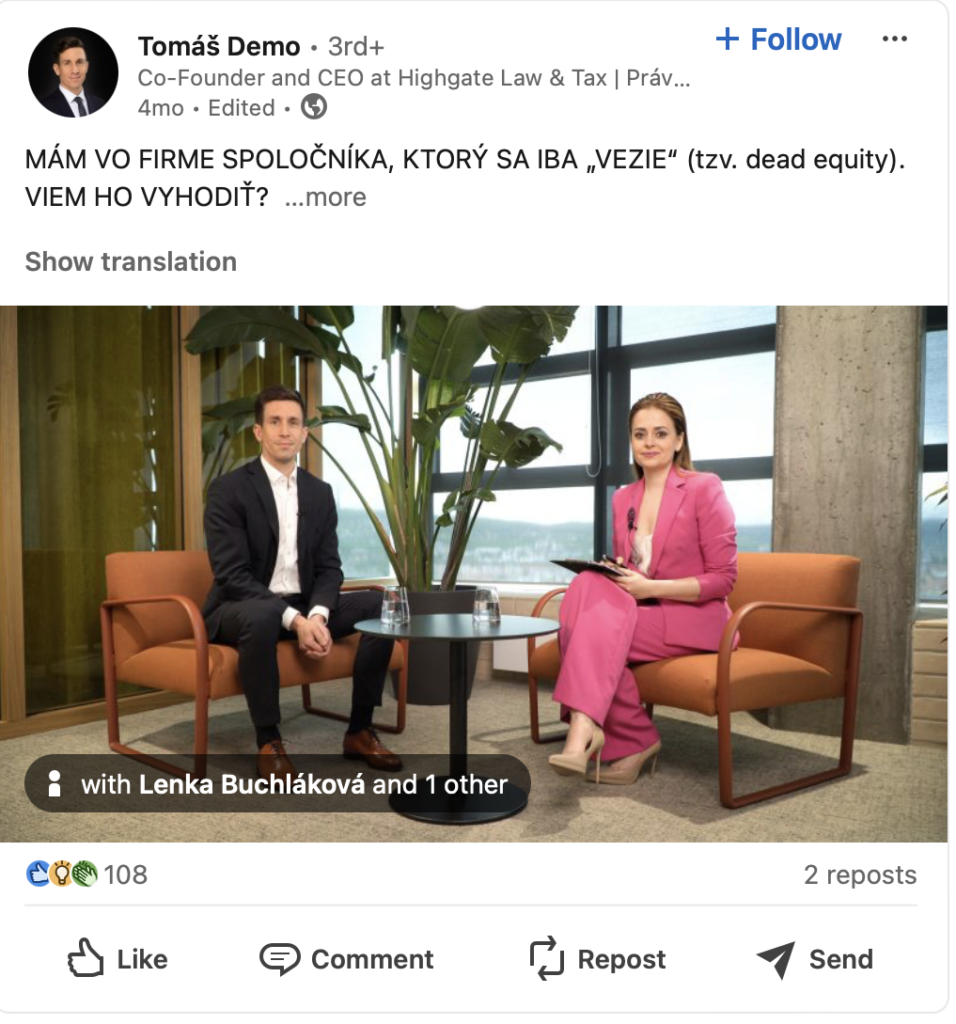

I HAVE A PARTNER IN MY COMPANY WHO ONLY “KNOWS” (dead equity). CAN I FIRE HIM? The situation when after years some partners at best do not want to attend general meetings or actively participate in building the company, or at worse block the decisions of the authorities (even) on fundamental operational issues, is not unique. How can this situation be resolved if such a shareholder refuses to sell his share in the company to the other shareholders or asks for an irrational amount? The Commercial Code provides for the possibility of expulsion of a shareholder from the company (§149). However, this option encounters a number of practical obstacles in practice: 🔹 the company (the other shareholders) must prove that the shareholder in question is in serious breach of his/her duties (this can often be problematic given the nature of the statutory duties imposed on a shareholder); 🔹the exclusion must be agreed by the shareholders owning at least 50% of the company (what if there is a passive 51% shareholder?); 🔹exclusion of a shareholder is only possible in the case of an LLC (it is not possible to exclude a shareholder of a joint stock company); 🔹expulsion is decided by the court (if the court proceedings take years rather than months, the purpose and effect of expulsion is lost); and 🔹the expelled shareholder is legally entitled to a compensatory share (simplified = business assets – liabilities according to the financial statements), which may not correspond to the market value of the share. Given such limitations on the exercise of the right to exclude a non-cooperating shareholder, clients are always advised not to rely on the fact that once this occurs, the shareholders will agree. It is always easier to reach an agreement while the weather is still “nice”, for example by pre-agreed call options between the partners in the event of defined situations arising. In the absence of such an agreement, there is still the option of splitting up the blocked company and protecting its sound assets by transfers to other non-blocked companies. However, such additional carve-outs are already legally more risky and tax-structuring intensive in a situation of dissenting shareholders. I talked more about unexpected situations between partners (split between partners, retirement, unexpected succession) with Lenka Buchlak in the next installment of our 🎙️ Highgate Talks[https://lnkd.in/eSJBCM-m]. And lest I forget, Peter Varga and I have started a new branch of our boutique consulting business focused on private wealth protection legal/tax structuring advice: https://estatevault.sk/
Law & Tax
Tomas Demo
tomas.demo@highgate.sk
Accounting
Peter Šopinec
peter.sopinec@highgate.sk
Crypto
Peter Varga
peter.varga@highgate.sk